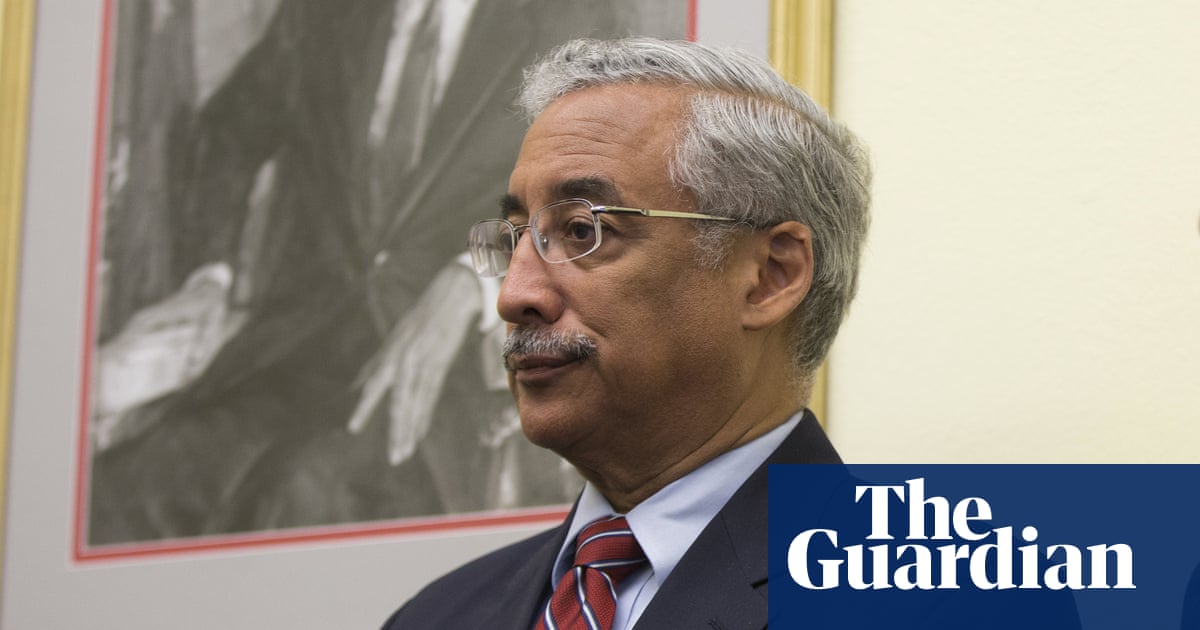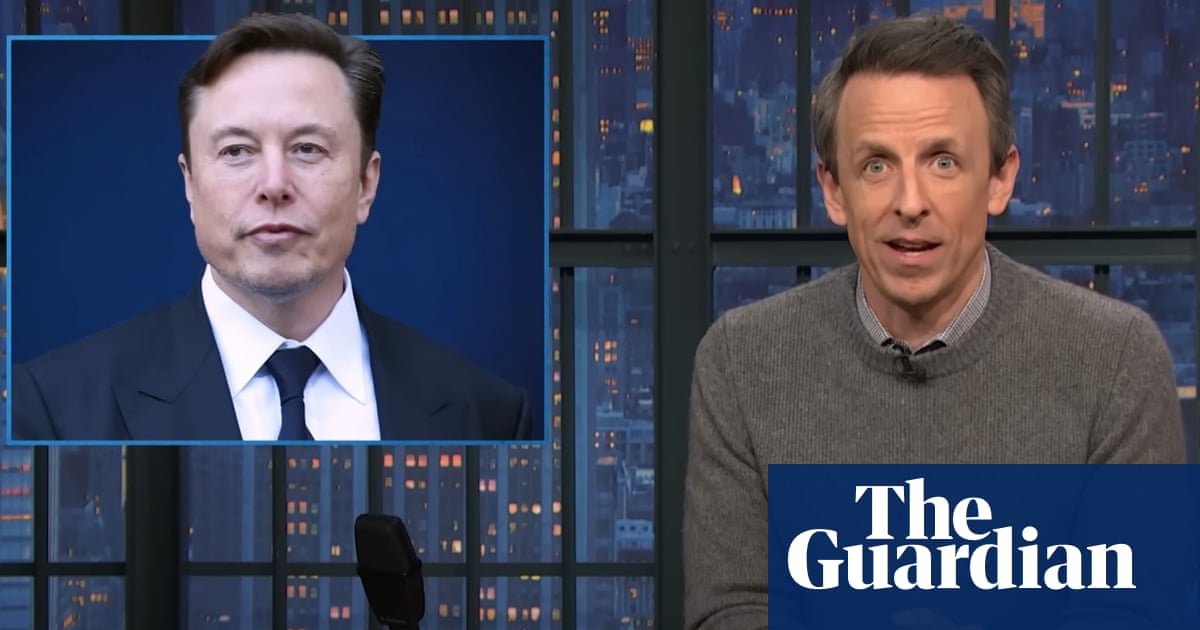Democratic House Leader Hakeem Jeffries quietly met with more than 150 Silicon Valley-based donors last week in California — an early step in Democrats’ efforts to repair relationships with a once-deep blue constituency.
The meet-and-greet, in tony Los Altos Hills, came at a precarious moment for Democrats in the tech world, which has lurched rightward in the second Donald Trump era. The world's wealthiest tech mogul is upending Washington, and Democratic leaders are facing criticism from their own base for their halting response. Jeffries, meanwhile, was on the West Coast seemingly trying to avoid the next Elon Musk.
Entrepreneurs from Musk to Meta’s Mark Zuckerberg and venture capitalist Marc Andreessen, all once card-carrying Democrats, are now aligning themselves with Trump. Zuckerberg visited the White House for meetings on Thursday.
In Northern California, Jeffries and Rep. Sam Liccardo, the freshman Democrat who represents part of Silicon Valley, were working to stem further defections and to rally Democratic-leaning donors to their side. To the crowd, which included several major Democratic bundlers, as well as California Reps. Jimmy Panetta, Mike Levin and George Whitesides, Jeffries described his party’s efforts to push back on Trump and outlined their campaign to retake the House in 2026, according to four people who attended the event and were granted anonymity to describe a private meeting.
“The singular focus was — how do we ensure Silicon Valley remains with Democrats,” said one of the people who participated, “because, right now, Silicon Valley is feeling very purple.”
Jeffries’ appearance was the Democratic leader’s first Silicon Valley swing after the 2024 election and in the run-up to the midterm elections — an early overture at a meeting where no donation was required to attend. And it was no accident he trekked to the nation’s tech capital. In Washington, Democrats in recent days have been lacing into Musk as he wreaks havoc on the federal government, viewing him as a more polarizing — and less popular — foil than Trump. But the moneyed tech world that Musk hails from is critical to Democrats’ fortunes in 2026.
“There is a significant fear that these tech folks, who have been with us for a long time, will say, ‘fuck it, we’re going with the other guys,’” said Alex Hoffman, a Democratic donor adviser who works with donors across the country but did not attend the event. “These donors are also pissed, watching former and current colleagues have unlimited, unchecked power, and getting richer off of this and they’re not.”
Democrats are “trying to mend fences and they’re also trying to keep them in the tent,” Hoffman added.
A spokesperson for Jeffries declined to comment.
Democrats have reasons to be concerned. For years, some in Silicon Valley accused Democrats of alienating the tech industry by attempting to overregulate it, while some Democrats outside Silicon Valley argued then-President Joe Biden’s antitrust enforcement and tax policies helped regular Americans over the extraordinarily wealthy.
Tensions exploded in 2024, when some tech leaders flocked to Trump’s campaign. Musk bought Twitter and transformed it into a Trump-friendly platform, then spent a staggering $290 million supporting Trump, according to recent Federal Elections Commission filings, while Andreessen spent more than $5 million on Trump. Democrats and Kamala Harris had their own tech backers last year, including Facebook co-founder Dustin Moskovitz, who spent more than $50 million, and Reid Hoffman, who spent more than $20 million.
But for the first time, Republicans had many more vocal — and well-heeled — supporters in Silicon Valley.
High-dollar donor frustration — and the problem it presents for Democrats — isn’t limited to California. Across the country, “the mood is tense” among Democratic donors, said another top Democratic fundraiser, granted anonymity to discuss the issue candidly.
Democrats are on their heels as Trump steamrolls the government, seemingly unchecked. “Everyone wants to know: What can you do about what I just saw Trump do on TV, and why did we end up here?” the fundraiser said.
In Silicon Valley, Jeffries did not independently raise tech issues, despite facing a room anxious to hear how Democrats might approach AI and crypto policies in the next Congress, several people who attended said. A second person who attended the event said they were frustrated that much of Jeffries’ comments focused on Trump.
“When will we move off this posture of complaining and moaning about Trump,” the person said. “What positive ideas will Democrats offer to people to bring people back in?”
That person said Jeffries has time to assuage Democratic-leaning tech leaders and “reestablish strong ties with the tech community.” However, the attendee said, “there’s work that needs to be done, and that begins with an acknowledgement that this last campaign was not their best work.”
Jeffries, at the event, “rightly sensed” the “anxiety in the crowd that the opportunity was slipping away and Democrats need to do a lot of things in a short period of time to prevent the realignment of tech with the Republican Party from becoming much more permanent,” the person continued.
The group included several top tech executives, including DocuSign CEO Allan Thygesen, Box CEO Aaron Levie, Bloom Energy CEO K.R. Sridhar and Cooper Teboe, a major Democratic donor adviser in Silicon Valley. Robert Klein and Danielle Guttman Klein, major Democratic donors, hosted it at their home in Los Altos Hills.
In his remarks, Jeffries concentrated on how Democrats planned to retake the House in 2026. He said Democrats were reaching toward the center, while Trump will swing harder right, according to the first attendee, who took notes on the presentation. Jeffries also highlighted how California Democrats helped the party net two more House seats in 2024, as well as the role the state will play in their efforts to flip the House, according to the fourth person who was in the room.
He also told the crowd that Democrats needed to pick their fights. It’s a mantra Jeffries has invoked before, comparing the party’s strategy to the New York Yankees’ Aaron Judge, who is “not going to swing at every pitch,” the Democratic leader said.
Jessica Piper contributed to this report.

 German (DE)
German (DE)  English (US)
English (US)  Spanish (ES)
Spanish (ES)  French (FR)
French (FR)  Hindi (IN)
Hindi (IN)  Italian (IT)
Italian (IT)  Russian (RU)
Russian (RU) 























Comments